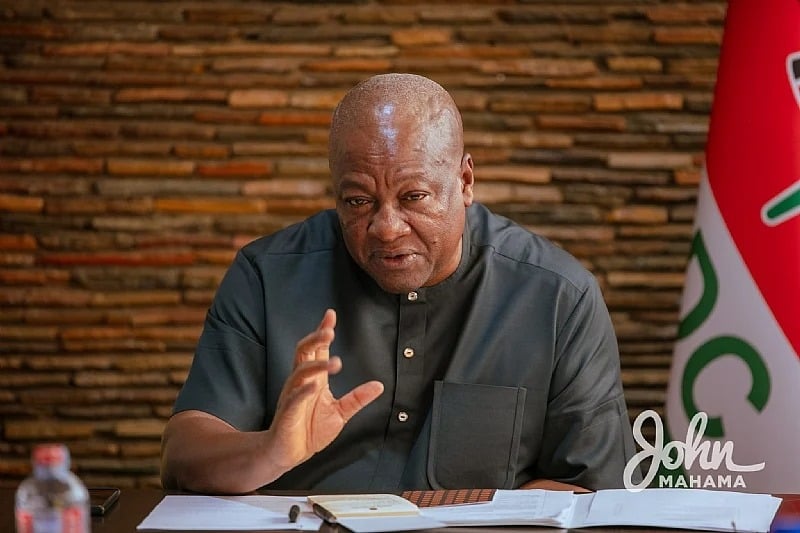Former President John Dramani Mahama has outlined an ambitious plan aimed at prioritizing teachers in the next National Democratic Congress (NDC) government’s educational reforms. In a key policy statement from the NDC 2024 Manifesto, Mahama emphasized that the government will focus on enhancing the conditions of service for teachers, investing in their professional development, and improving their overall welfare. Central initiatives include the abolition of the teacher licensure examination and the integration of the licensing process into the final year assessments for teacher trainees, thereby simplifying the pathway to qualification. Additionally, Mahama proposed scrapping mandatory national service for teacher trainees, restoring automatic employment for newly qualified teachers, and ensuring timely promotions supported by adequate funding for their salaries.
To further support teachers, Mahama introduced the “Teacher Dabr3” Project, which aims to provide accommodation facilities within new school buildings, alongside a special 20 percent allowance for teachers who accept postings to rural or underserved areas. More broadly, the NDC plans to launch a Government Assisted Mortgage Scheme (GAMOS) in partnership with teacher unions, which would facilitate home ownership for teachers. The proposal includes guaranteed rent loans for newly trained teachers and a vehicle ownership scheme through flexible payment arrangements and government backing, developed in collaboration with the banking sector. This multi-faceted support system illustrates a clear commitment to making the teaching profession more attractive.
In addition to these measures, Mahama expressed a commitment to expanding professional development opportunities for teachers via scholarships, mentorship programs, and the creation of digital learning platforms. Recognizing the acute deficit in professional teachers, he proposed establishing a new College of Education in the Afram Plains region. His approach towards inclusion and special education is equally dedicated, aiming to fully implement the Inclusive Education Policy established by his previous administration. This includes renovating dilapidated special schools, increasing funding, and progressively integrating students with disabilities into mainstream education.
Further initiatives to support learners with special needs include upgrades to the Inclusive Education Resource Centre, early screening for visual and hearing impairments, and dedicated support systems for educators. Mahama also underscored the importance of a Gender and Inclusion Education Integration Plan that addresses challenges across gender, disability, and child protection, alongside effective teaching methodologies for gifted youth. These proposals form part of a broader strategy to enhance access and equity within the education system.
Moreover, Mahama’s government would prioritize functional literacy and lifelong learning through complementary and non-formal education avenues. This includes enhancing the Islamic Education Unit to properly recruit Arabic tutors and establishing STEM and technical vocational education and training (TVET) schools in underserved communities. Scholarships for gifted but needy Muslim students pursuing higher education in fields like law, medicine, and engineering, and support for Islamic Colleges of Education, are slated for introduction as well. His focus on providing vocational training opportunities through the National Apprenticeship Programme and forging partnerships with public universities to create satellite campuses in newly established regions reflects a realistic approach to addressing educational disparities and job readiness among young people.
In rallying support for the NDC and himself, Mahama called on the electorate to vote for him and the NDC parliamentary candidates, stating that their policies will restore confidence and integrity in Ghana. His comprehensive educational reform agenda exemplifies a forward-looking strategy aimed at not just improving the educational landscape but also addressing socio-economic challenges within the nation. With his plans clearly articulated, Mahama aims to resonate with voters, presenting a vision that places teachers and inclusive education at the core, signifying a major investment in the future of Ghana’s youth and societal progress.














